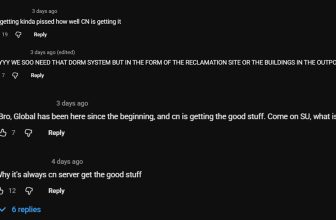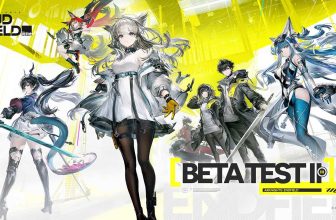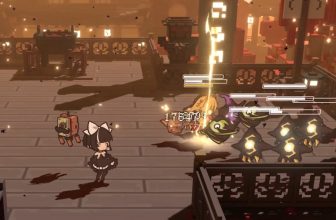
KPL (King Pro League) Grand Finals Interview — Inside the Minds Guiding Honor of Kings Esports
During the King Pro League (KPL) Grand Finals, we spoke with three key figures behind Honor of Kings — Dean Huang, Game Producer of Honor of Kings; James Yang, Senior Director of the Global Esports Centre at Level Infinite; and Cheng Huang, Head of the Honor of Kings Professional League.
As the arena filled with over ten thousand fans cheering for their favorite teams, the trio discussed the title’s rapid global growth, the evolution of its esports scene, and how Honor of Kings continues to innovate while staying true to its roots.
Why Expand the Honor of Kings Esports Scene So Quickly?

When asked about Honor of Kings’ surprisingly fast global expansion — moving into multiple regions with large-scale investments in under two years — James Yang explained that, if anything, the pace hasn’t been fast enough.
“Actually, I think we are not fast enough. We need to be even faster,” Yang said. “The KPL started nine years ago, and there’s already a gap between China and the global scene. To chase that gap, we have to move quickly — and invest heavily.”
Level Infinite has poured $15 million USD into the ecosystem this year alone, aiming to accelerate growth while building a sustainable foundation for competition worldwide. “Esports is very important for a MOBA game,” Yang added. “When people watch esports, they’re also learning — how to play heroes, how to team up, how to improve. It’s a critical part of the community and the success of the game itself.”
How the Esports Power Up Program Bridges the Global Skill Gap
With the Honor of Kings Esports Power Up Program offering training and mentorship for international teams, Cheng Huang shared how this initiative helps bridge the gap between Chinese and overseas players.
“The HoK esports structure developed at different paces in China and overseas,” Cheng said. “So we created more communication channels between the leagues. The Power Up Program lets overseas players and coaches learn directly from KPL veterans.”
He highlighted upcoming opportunities for international teams to compete alongside the best. “In the Challenger Cup, we plan to welcome more overseas teams. With open ecosystems and shared coaching channels, I believe their performance will improve greatly,” Cheng added. “We want more international faces on the big stage, showing their potential to the world.”
Which Country Shows the Most Promise Internationally?

When discussing which global region has shown the most potential to challenge China’s dominance, James Yang didn’t hesitate.
“If I have to select one country, then objectively, it’s Malaysia,” he said. “They were the winners of the recent Nation Clash, and during the KWC this year, a Malaysian team even won a match against one of the best.”
Yang was quick to temper expectations, however, reminding that esports is unpredictable. “Anything can happen — it’s a sport, after all. Malaysia stands out right now, but with the KIC happening next week, who knows which team will rise next?”
What Makes This Year’s KPL Finals So Significant?
As this year’s KPL Finals marked a major milestone for Honor of Kings esports, Cheng Huang described it as both a dream realized and a new beginning.
“This is our first time hosting the KPL in the birthplace of the national stadium,” he said proudly. “It’s a milestone event for us — hosting an offline competition that attracts over 10,000 fans has always been our dream.”
For Cheng, the achievement symbolizes nine years of progress for the league and its community. “We hope to show how esports can help young people realize their dreams and lead future trends. With a bigger stage, our players and teams can perform with even greater energy and passion,” he said.
How Honor of Kings Balances Innovation with Its Core Identity

With Honor of Kings now celebrating its 10th anniversary, innovation is key — but so is preserving the essence of what players love. Dean Huang described this as a process of “self-evolution” rather than reinvention.
“Our goal isn’t to reshape Honor of Kings — it’s to evolve it,” Huang explained. “The 10th anniversary gives us strong technical foundations and high-quality content. We want to inherit the game’s cultural legacy and bring it to a global audience.”
Community feedback remains at the heart of that evolution. “We continuously listen to our players and respect their habits,” Huang said. “Innovation for us means improving the experience while staying true to what made Honor of Kings special.”
Why Players Around the World Choose Honor of Kings
Asked why Honor of Kings continues to resonate globally, Dean Huang pointed to three main factors: strong gameplay, cultural respect, and an evolving community.
“In terms of MOBA, we have rich experience — ten years of refining the genre,” he said. “We offer a high-quality gameplay experience with a low threshold, making it accessible to everyone.”
He also emphasized the importance of local identity. “We respect regional cultures by introducing local heroes, festival content, and localized features,” Huang added. “We constantly listen to player feedback and iterate based on it. That’s how we grow together with our global community.”
The Hardest Moments and Lessons from Nine Years of KPL

When asked about the most difficult moments in KPL’s nine-year history and how the team overcame them, Cheng Huang explained that the league’s journey was built not on one major breakthrough, but on years of steady collaboration and adaptation.
“The reason KPL has developed to where it is today isn’t because we did one particular successful thing,” Cheng said. “Over the past nine years, we’ve always adhered to the principle of embracing more partners — sponsors, clubs, and others — to co-build this ecosystem together.”
He shared that each stage of KPL’s evolution came with its own unique challenges. “When we first started, we worried about whether enough teams would even recognize our league and join us. We had to refine our format, make the matches more exciting, and find ways to keep audiences engaged.”
Later, as KPL grew, the challenges shifted toward visibility and infrastructure. “We had to discuss broadcast quality, technical details, and work closely with players and teams to ensure a world-class presentation,” Cheng explained. “And now, our biggest challenge is scale — ticket demand is more than 20 times higher than what’s available. We might have 50,000 seats, but over a million fans who want to attend. Every phase has its own problems, but also new opportunities to grow stronger.”
The Cultural Heart of Honor of Kings
Honor of Kings is deeply rooted in Chinese culture, but as the game reaches international audiences, the challenge lies in ensuring that cultural identity resonates across borders. Dean Huang believes that the game’s strength comes from its balance of tradition and inclusivity.
“Honor of Kings is based on oriental culture, but it also offers a fantasy world that’s very inclusive,” Huang said. “You can see heroes like Zhao Yun, Diao Chan, and Lu Bu alongside figures such as Marco Polo. When you like a hero, it’s because you connect with their story — and that emotion is universal.”
He pointed to Garuda, a hero recently introduced in Indonesia, as an example of how local culture can thrive within the Honor of Kings universe. “Garuda is based on Indonesian mythology, and players all around the world love him — not just Indonesians,” he said. “That shows how shared values and stories can transcend cultural boundaries.”
The Next Decade of Honor of Kings Esports

As Honor of Kings celebrates the 10th anniversary of the KPL, the team is already looking ahead to the next decade. Dean Huang emphasized that the future of Honor of Kings esports will focus on fairness, creativity, and cultural diversity.
“As a competitive game, we’ll continue to ensure fair play and offer players a richer, more exciting experience,” Huang explained. “When we go global, we’ll tailor the game to local cultures, making it truly international. In the future, co-creation will be a major direction for us.”
James Yang added that the long-term goal is to bring global competition to the same level as China’s professional scene. “Our ambition — and hopefully it won’t take ten years — is to have a global team reach the same level as the KPL,” Yang said. “Eventually, we want the KIC and KPL Finals to come together as one massive global event.”
Why the KIC and KPL Finals Were Separated
In 2024, the KPL Finals and the Honor of Kings International Championship (KIC) were held separately for the first time — a move that caught fans’ attention. James Yang explained that this was a deliberate step to ensure the global esports ecosystem grows at a sustainable pace.
“The main reason is that the level of competitiveness is still different,” Yang said. “If the skill gap is too large, then it’s not fun for the teams — and not enjoyable for audiences to watch one-sided matches.”
Yang noted that although last year the gap between Chinese and international teams was significant, it’s closing faster than expected. “We can already see the potential this year,” he said. “Our ambition is to unite the global and Chinese scenes in one shared event — and I think it can happen much sooner than ten years.”
Adapting Heroes for Global Players

One of the most fascinating aspects of Honor of Kings’ global expansion is how it adapts its heroes across regions. For example, in Singapore, the character known as Zhu Bajie in China was renamed Ata — a reflection of cultural localization that goes beyond language.
Dean Huang explained that while the gameplay remains identical, the storytelling and presentation are carefully tailored for local audiences. “When we talk about heroes, we focus on three things — storytelling, aesthetics, and gameplay,” he said. “Ata and Zhu Bajie share the same gameplay, because the core design is already competitive. But in terms of aesthetics and story, we localize them so players around the world can relate.”
Huang added that cultural authenticity remains central to every adaptation. “When there are strong cultural elements that deserve to be kept, we retain them and tell that story well,” he said.
Expanding Localization Through Community Demand
With Honor of Kings now holding international tournaments in countries like the Philippines, the question arises: how does the team decide which regions to focus on next? James Yang explained that the answer lies in the players themselves.
“We don’t set strict priorities by region,” he said. “It all depends on our fans’ support, the community’s passion, and local demand. If players want localized skins or events, build that excitement and let us know — we’ll do our best to make it happen.”
Yang also teased the upcoming KIC Finals, set to take place in the Philippines. “This isn’t a one-time thing — we’ll keep expanding,” he said. “And since the KIC Finals are happening soon, I’ll see you there. The SB19 theme song was amazing — we’re really excited to bring the tournament experience to fans in the Philippines.”
The Secret to a Successful Collaboration

Honor of Kings has had no shortage of collaborations with major franchises — from Detective Conan and Jujutsu Kaisen to Jurassic World and Frozen. But when asked what makes a crossover truly resonate with players worldwide, Game Producer Dean Huang said that authenticity and mutual respect are at the heart of every partnership.
“Every time we collaborate with a famous IP, we’re genuinely excited,” Huang explained. “Before entering the gaming industry, many of us were already fans of these IPs ourselves. That’s why we pay such close attention to making each crossover feel natural and meaningful.”
Huang emphasized that these partnerships take time — not just in licensing, but in creative alignment. “We don’t want to simply transplant a famous character into Honor of Kings. We want a deep collaboration that tells stories from both worlds in harmony,” he said. “Our vision is to make Honor of Kings a great IP with global influence, so these collaborations are about mutual growth and storytelling.”
Could a Korean Hero Be Next?
When a question was raised about regional representation — particularly the lack of a Korean hero despite Honor of Kings’ growing presence in the region — Huang acknowledged that localization is an ongoing process guided by player input.
“Honor of Kings is an inclusive ecosystem,” he said. “We’ve already heard the voices from South Korea, and we do plan to launch heroes inspired by local cultures. We’re open to suggestions, because community input is what shapes the game’s evolution.”
Adding to that, James Yang offered a lighthearted comment tied to the competitive scene: “In KIC, there’s an FMVP skin. So if Nongshim — a Korean team — wins, you might just see a Korean-themed skin appear,” he teased.
Dreaming of the Day an Overseas Team Beats China

Few questions sparked as much energy as when the discussion turned to global competition — specifically, how the developers would feel if an international team were to defeat China’s best in the next few years.
To that, Cheng Huang smiled. “We’d love to see it,” he said. “It would mean that Honor of Kings esports has entered a new stage. Right now, KPL’s leading role is partly historical, but the rise of overseas competitiveness would be a beautiful thing. Having an international team beat a Chinese one would mark the true start of a global era.”
Staying Relevant in an Ever-Evolving Market
With new competitive titles appearing each year, maintaining relevance is a constant challenge for any long-running game. When asked how Honor of Kings plans to keep its momentum, both Cheng Huang and Dean Huang agreed that continuous evolution is the key.
“We have to maintain the audience’s excitement — not only with new features but also through better broadcasting technology and more engaging tournaments,” Cheng said. “We’re also expanding our training system to nurture new players and diversify the competitive ecosystem.”
From a development standpoint, Dean emphasized the game’s depth as a mobile title. “Mobile gaming has great potential,” he said. “Honor of Kings stands out because of its complexity and accessibility. We’ll continue pushing content breakthroughs while co-building with our players. Staying relevant means staying open-minded.”
What Hosting the KPL Grand Final at the Bird’s Nest Really Means

This year’s KPL Grand Final, hosted at Beijing’s iconic Bird’s Nest Stadium, represented more than just a spectacle — it was a statement.
“For KPL, this event is part of our global esports vision,” said Cheng Huang. “We broadcasted simultaneously in five languages across 50 countries and over 20 platforms. It’s about connecting players worldwide and sharing KPL stories beyond China.”
He added that this milestone isn’t an endpoint, but a new beginning. “In the future, we want our players and heroes to be known by global audiences — to let the world see what KPL stands for.”
Bringing the KPL Blueprint to the World
When asked what lessons the KPL model can offer to other regions like Southeast Asia, James Yang was quick to clarify that the goal isn’t replication, but adaptation.
“Without KPL, Honor of Kings esports wouldn’t have grown this fast,” Yang said. “We’re not copying KPL — we’re sharing its DNA: the discipline, the structure, the multi-layered pathway from amateur to pro.”
He added that each region needs its own flavor. “Some may focus on open structures, others on pro leagues. The point is to localize while carrying forward the KPL spirit — that’s how global esports will thrive.”
Expanding Esports in Japan

With Japan steadily growing its own Honor of Kings community, the conversation turned to the country’s esports development. Yang noted that Honor of Kings has already made strides there through grassroots efforts.
“There are Japanese teams in our Major League East, and we’re running campus tournaments to build the next generation,” he explained. “One of our top KPL players even visited Japan to meet fans. The growth may be slow, but it’s steady.”
Yang also highlighted upcoming opportunities: “Next year’s Nagoya Asian Games will be a huge boost for Japan’s esports scene,” he said.
Dean Huang added, “Yes, in October and November, we’ll see major esports events in Japan — including Honor of Kings as one of the official titles. The world’s best teams will be there.”
The Developers’ Favorite Heroes
The trio were then asked for their favourite Honor of Kings’ heroes. Dean Huang smiled. “Luna and Jing are my favorites,” he said, referencing the Bird’s Nest theme of inviting players and heroes into the arena.
Cheng Huang chose Marco Polo, while James Yang picked Princess Frost and Dong Huang — but admitted his true favorite was Yang Jian. “Because that’s my brother’s name,” he laughed.
Bringing Mobile Esports to New Territories

While mobile esports has flourished in China and Southeast Asia, its presence in markets like the UK remains comparatively small. James Yang acknowledged that introducing Honor of Kings to regions dominated by PC and console gaming is a gradual process.
“There are already mobile tournaments happening in the UK,” Yang said. “It’s slow because once certain platforms dominate audiences, switching habits isn’t immediate. But we can see more people playing mobile games, and I believe mobile esports will grow steadily. Ten years from now, I’d like to see Honor of Kings become much more popular in the UK and Western markets.”
Tailoring Esports to Diverse Cultures
Localization isn’t only about in-game content — it extends to the competitive scene itself. Yang explained that understanding regional esports cultures is essential.
“Esports is part of publishing,” he said. “We tailor our approach depending on how developed esports is in a region. In places where esports culture is still emerging, we focus on community and amateur tournaments to introduce players to the ecosystem. In regions with established esports, we emphasize professional leagues and large-scale competitions.”
Game Producer Dean Huang added that replicating KPL’s proven systems globally is a priority. “There’s a common presumption that KPL is already very successful, and it is. But the story of amateur players rising to pro is something we can promote and adapt worldwide. We aim to create a platform for players everywhere to communicate and grow the esports scene together.”
Hopes for the Grand Final and Beyond

As the KPL Grand Final approached, Cheng Huang shared his vision for both the competition and the wider esports ecosystem.
“We want to maintain KPL’s spectator appeal and competitiveness,” he said. “For clubs and players, our goal is skill development and spotting potential talent. Across professional leagues and tournaments, we hope to see more players shine and more exciting competition emerge.”
What Sets AG Apart from the Competition
The conversation turned to the dominant team AG, whose recent string of victories has solidified its reputation.
“AG has basically won all KPL tournaments so far,” Cheng Huang said. “They have talented players and a coach who maximizes their skills with tactical combinations. That’s why they’ve achieved so many successes.”
Yet, he noted that AG’s dominance won’t go unchallenged. “Their opponents are formidable — TDG nearly beat them, and Wolves fought through the lower bracket, defeating four consecutive teams to reach the finals. Wolves is a ten-time KPL champion, so tomorrow’s match promises to be spectacular. Fans on social media are already buzzing — it’s going to be a fantastic showdown.”






